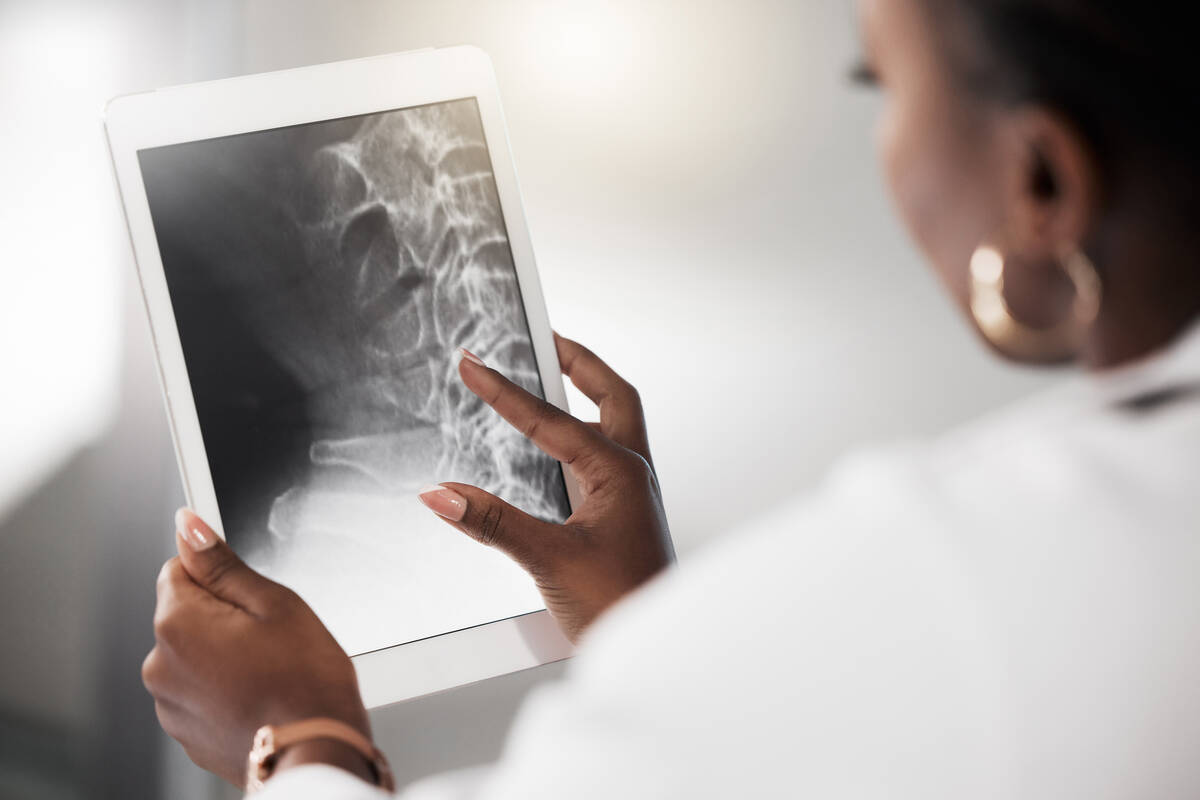Savvy Senior: How to know if you’re getting osteoporosis
Dear Savvy Senior: Can a person in their early 50s have osteoporosis? When I fell and broke my wrist last winter the doctor said I might have osteoporosis. — Surprised Susan
Dear Susan: While osteoporosis is much more common in adults over age 60, it can strike younger people. In fact, half of women and up to 25 percent of men in the United States over age 50 will break a bone because of osteoporosis, according to the Bone Health & Osteoporosis Foundation. Here’s what you should know:
Osteoporosis, a disease that weakens your bones is also called a silent disease because there are no warning signs until a fracture occurs. Around 10 million Americans over age 50 have osteoporosis, and an additional 44 million have osteopenia (lower than normal bone density) — 80 percent of whom are women.
Most people, by the time they reach their late 30s, gradually start losing some of their bone mass, but for women, the biggest decline happens in the five to seven years following menopause, when levels of estrogen — which helps to keep bone strong — plummets. Bone loss for men occurs much more gradually. However, by age 75, osteoporosis is as common in men as it is in women.
To help you determine your risk of osteoporosis, the International Osteoporosis Foundation has a quick online test at RiskCheck.Osteoporosis.Foundation.
Bone checkup
According to the BHOF, all women over 65 and men over 70 should have a baseline dual-energy X-ray absorptiometry (DXA) scan, which is a painless measurement of the calcium in your bones. But those at high risk should start around age 50.
Factors that may make someone a candidate for early screening include a family history of osteoporosis, a broken bone after age 50, vitamin D deficiency, a smoking habit, medical conditions such as diabetes or rheumatoid arthritis or previous or current use of medications that can weaken bones, such as prednisone or certain antidepressants.
Most bone density tests are covered by health insurance companies, including Medicare.
Bone builders
If your bone scan finds that you have osteopenia but have a low-to-moderate 10-year fracture risk, lifestyle measures are usually the best course of action. Three important things you can do to boost your bone health:
* Calcium and vitamin D: Calcium helps keep bones strong, and vitamin D helps us absorb calcium. Women older than 50 and men over 70 need at least 1,200 mg of calcium per day, ideally from foods such as dairy, canned sardines, kale and fortified orange juice. Adults over 50 need 870 to 1,000 IU of vitamin D each day, but that’s hard to get from food. Have your levels checked to see if you need a supplement.
* Exercise: Low-impact, weight-bearing exercises such as walking, and strength training with light weights or resistant bands several times a week, can help build bone strength, as well as improve balance and muscle strength.
* Don’t smoke: Women who smoke a pack of cigarettes per day as adults have less dense bones at menopause.
Osteoporosis meds
If your bone density test shows osteoporosis, your doctor will probably recommend medications. The first line of treatment is usually bisphosphonates such as alendronate (Binosto and Fosamax), risedronate (Actonel and Atelvia) and ibandronate (Boniva). These oral or injectable drugs slow the breakdown of bone but won’t build it back.
For severe osteoporosis, your doctor may prescribe an anabolic: teriparatide (Forteo), abaloparatide (Tymlos) or romosozumab (Evenity). These are typically given as daily or monthly injections and increase the amount and strength of bones.
Send your senior questions to: Savvy Senior, P.O. Box 5443, Norman, OK 73070, or visit SavvySenior.org.














